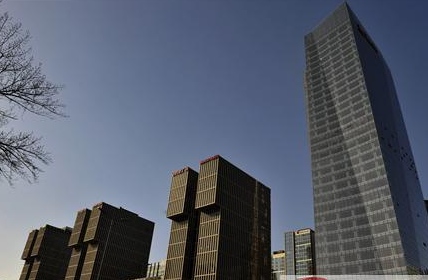sensor,starter parts,alternator and parts Manufacturer - sormor Auto Electric

|
sensor,starter parts,alternator and parts Manufacturer - sormor Auto Electric
|
 |
|
 China's authorities, apparently trying to allay rising complaints about housing prices and an urban land selling spree, decided Thursday to close door on State-owned enterprises purchasing land and engaging in property development. More than 70 State-owned firms are being ordered to unwind their real estate business, once their current development projects are completed, a spokesman from the State Council's State-owned Assets Supervision and Administration Commission told reporters in Beijing. One day after China's Premier Wen Jiabao vowed at a press conference held upon the closing of the annual National People's Congress on March 14, in the capital city of Beijing, three plots of land earmarked for housing development were auctioned and their prices topped at record highs at the hammer. The voracious appetite for land in cities like Beijing and Shanghai where housing prices have already soared by strides and are not affordable by most ordinary residents, immediately caused an uproar and fierce criticism on the Internet chat-rooms. The super-wealthy State-owned enterprises, which are administered by the Beijing Central Government, are blamed for firing up the land acquisition frenzy, which is sure to push up housing prices further. According to The Beijing News, a local newspaper, the three firms that bid the highest, with an aggregate price tag of 11 billion yuan (US$1.6 billion), are all State-owned large enterprises. One tract of the land, located in Wangjing, northeast the city, sold for 27,000 yuan (US$3,970) per square meter, even higher than the price of finished apartments in the area. Dangerous Asset Bubbles Without specifying a date, the State Council's commission in charge of more than 120 mega State-owned enterprises, ruled that 78 state companies, whose main businesses were not property development, will be put under "adjustment and restructuring” as soon as their current projects under development are accomplished, said commission spokesman Du Yuan-quan at a press conference held on Thursday. However, 16 central government-run enterprises approved by the commission in 2003 to mainly operate in the real estate sector, will remain in the business, Du said. The 16 companies' net profit was 18.8 billion yuan in 2009. In another government move to curtail land prices, the Ministry of Land and Resources, also under the State Council, decreed last week that realty developers pay a 50 percent down payment on land acquisitions within a month of signing a contract. China's ordinary urban residents have complained hard that home prices have been rising out of their reach, despite a set of government policies to rein in speculation and asset bubbles. The National Bureau of Statistics said that housing prices increased by 10.7 percent in February from a year earlier. Some Chinese analysts say that a large proportion of the government's 4-trillion-yuan (US$586 billion) stimulus spending plan has gone to State-owned enterprises, but many of which poured the money into the property market, creating an imminent housing sector bubble in the country in 2009. Some SOEs have grabbed enormous profits in the property sector because their official background makes them easier to obtain land and bank loans. Economists have cautioned the central government of growing risks posed by the real estate bubbles, which if burst, might trigger the American-style mortgage crisis, dealing a blow to the country's banking system. People's Daily Online [Close] [Print] Time:3/19/2010 |
|
| Home| Company Info| Products List| Workshop| News| Quality Control| Package| Contact Us| |
| Autoparts|Auto Electron|Auto Electric|Sensors|Starter motor|Alternator|Voltage Regulators|Ignition Modules|Controller|Rectifiers|Sitemap |
| Address:No.1566,Bayi south street, JinHua City, ZheJiang Province, China Tel:0086-579-82480797;13957972939 Fax:0086-579-82387322 Copyright © Yichen Corporation. ICP:10009760 |